Information ecosystems in disequilibrium

Building alliances and materializing social justice through conversations: key takeaways from the gathering in Santiago
In November 2024, we spent three days in Santiago de Chile with journalists, activists and organizers from 10 countries in Latin America and the Caribbean. During our time there, we were immersed in conversations about the state of information ecosystems and how participants (and their organizations) are working to restore these ecosystems.
Below you can read strategies from the in person event:
“Our survival is working together”: building alliances across movements, looking for ways of breaking political bubbles
A dire funding landscape, the rise of authoritarian tendencies in many countries, excessive over-reliance on platforms for communication and media landscapes. “In this context, how can we sustain our work?”. Questions around the sustainability of organizations working for stronger information ecosystems permeated much of our gathering. Thinking about civil society’s survival in light of all these challenges can certainly be difficult. But for the group that came together in Santiago, imagining ways of building strong alliances across movements and looking for strategies for collaboration against some of these very complex challenges emerged as a potential “way out”.
The zine, produced by a group during a workshop facilitated by Hambre Hambre Hambre in our gathering in Santiago, emphasizes the power of creative methodologies combined with humour and strategic alliances across movements.

Unbalanced information ecosystems harm our ability to communicate with each other, prioritising meaningful conversations can be an antidote
In Santiago, we’ve heard from these and other organizations who attended about how they’re working to craft reporting and build space for conversations in partnership with their audiences/their communities with the goal of amplifying the spaces we have for conversation. Considering the dynamics of attention economy and extreme polarization in the region, there was a general consensus that we need to create spaces that allow (and make it easy!) for people to engage in conversation with each other, that allow for “breaking the ideological bubbles”, that make room for diverse perspectives. And for that to happen – there needs to be robust funding flowing towards these organizations. This idea can be illustrated by this zine, put together by participants during the workshop facilitated by Hambre Hambre Hambre:
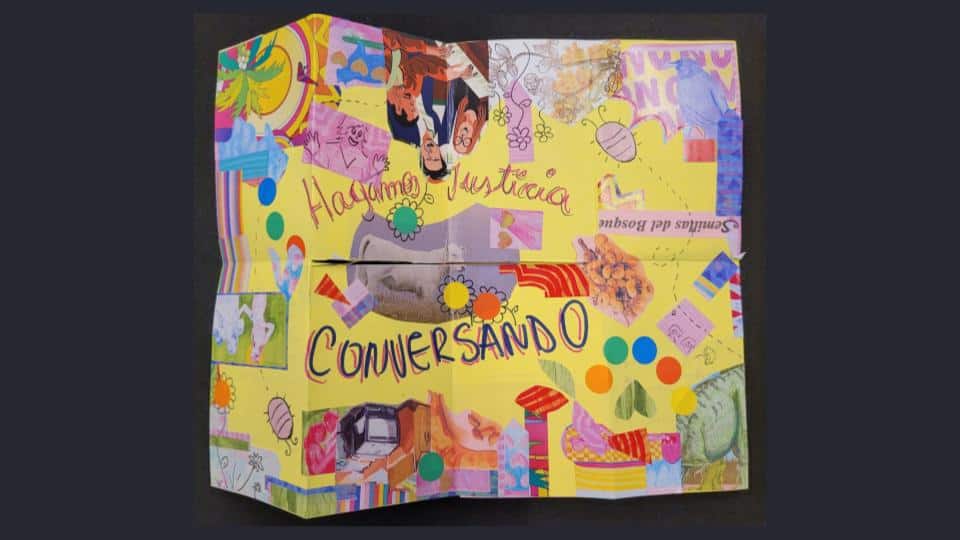
Sharing learning about how various organizations are tackling the challenges they face can lead to a stronger ecosystem
Keeping in mind the contextual differences, while still recognizing common denominators between our challenges can actually make our work stronger. It means acknowledging that there are many shared root causes for the disequilibrium we see in our information ecosystems and also recognising that though they show up in very similar ways a lot of the time, their repercussions might look a little different in each context.
At the same time, there is so much that can be learned from learning about how different organizations are working to address similar challenges. Though simply transplanting strategies without considering the context won’t necessarily work, it can inspire, open up possibilities and highlight potential roads to be taken. In Santiago, as we listened to how each organization is rolling out various experiments, strategies and methodologies, we were reminded of how, ultimately, to restore information ecosystems, we need a myriad of strategies that holistically address the various informational needs of people in different contexts. Learning from each others’ experiments can help us get there.
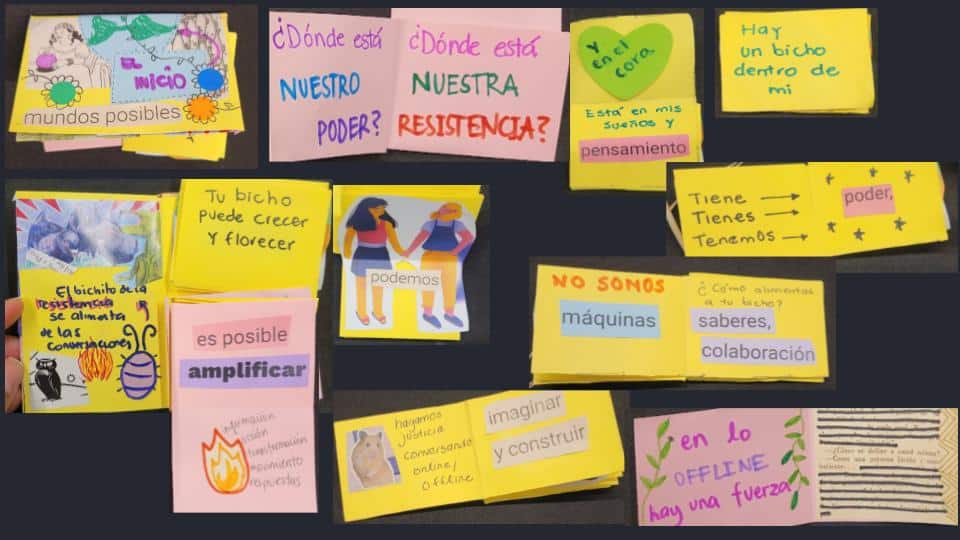
Findings from our research
Across Latin America and the Caribbean, inequities in access to the internet and digital technologies continue to impact people’s ability to meaningfully access information.
State actors, corporate stakeholders and extremist groups in the region have been using technology to surveil and undermine the work of activists.
Disinformation and misinformation have been used to instigate hate speech against vulnerable groups, and digital attacks against activists and journalists are frequent and becoming both more sophisticated and more pervasive.
When considering these (and other) challenges involving digital technologies and information ecosystems, it is common to see an exaggerated focus on assumptions that the “right” techno legal framework is all that is needed to “perfectly calibrate” things.
Tech cannot be the only focus – many elements contribute to the imbalance
But conversations with individuals as part of this project have consistently confirmed that the imbalanced nature of information ecosystems in Latin America and the Caribbean is nothing new; nor is it exclusively a result of harmful uses of digital technologies.
The fact that there are so many other societal forces that shape information ecosystems calls for a thoughtful consideration of more holistic and strategic interventions. In other words, to really understand what is needed for stronger and healthier information ecosystems, tech cannot be the only focus.
Below are some of the elements we identified that contribute to this imbalance, and which most heavily impact those working to build healthy information ecosystems.
Information ecosystems have been hostile for a long time
Information ecosystems in LAC have been historically impacted by machismo, misogyny, racism, classism and ableism. As a consequence, some sectors of the population have had their histories erased, racist perceptions of them and their peoples perpetuated, access to information denied and their voices silenced.
This is a reality that must be taken into consideration when examining the current state of information ecosystems in the region.
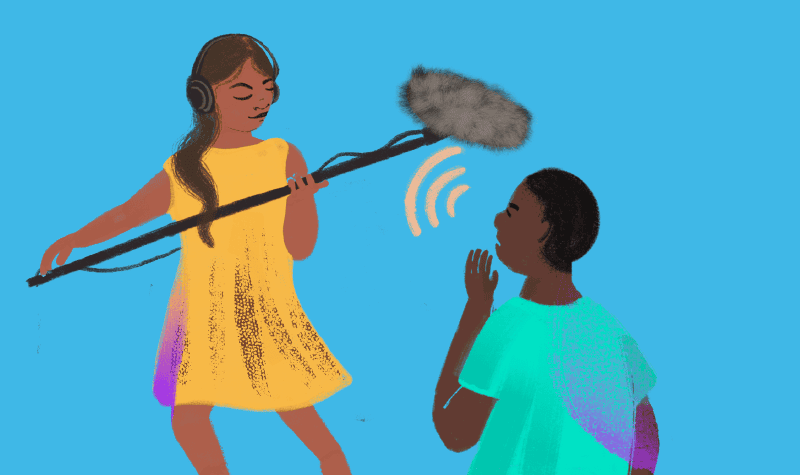
Authoritarianism and shrinking civic space are impacting the information ecosystem
In many parts of LAC, authoritarianism has been a part of history. Recently, there has been a resurgence in authoritarian tendencies, within the context of an alarming reversal of basic freedoms. In this context, human rights defenders, activists and pro-democracy civil society organizations are working in increasingly hostile environments. A similar pattern can be seen in the experiences of media workers and journalists, many of whom are subjected to hostile speech, raided homes and offices, arbitrary arrests, various forms of threats, online attacks and extreme violence.
Across the region, many journalists have been self-censoring and/or altering their behavior online to protect themselves. The situation can be even worse for journalists and communicators who are women and LGBTQI+. For example, one study in Brazil shows that up to 85% of women and LGBTQI+ journalists have changed their behavior online and in Argentina 83% of gender editors have been targeted by online violence.
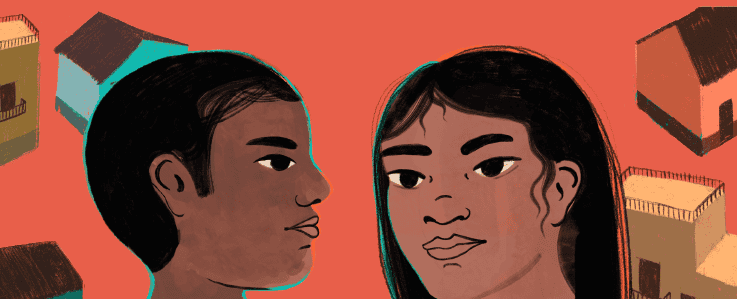
Increasing political polarization is a defining feature
Latin America and the Caribbean have seen the greatest increase in political polarization in the world in the last 20 years.
The ways digital platforms (including major social media platforms) mediate how people access news and information, and the ways in which they influence what kind of information people may see or have access to, both end up contributing to “ideological bubbles that tend to confirm pre-conceived political beliefs”.
As increasing polarization contributes to growing information disorder, these ideological bubbles also become the place where misinformation and disinformation are disseminated in ways that reinforce individuals’ beliefs, and reaffirm worldviews from the groups they identify with.
Because polarization leads to a decrease of healthy, plural political conversations, instead incentivises increasingly conflictive exchanges, it ends up lowering levels of civic engagement and pushing people away from democratic processes.
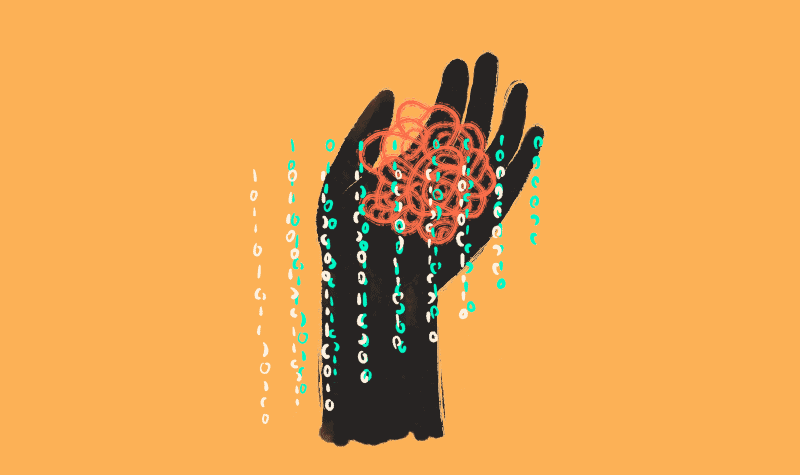
Not enough people have meaningful access to information
Information is a tool people can use to engage in democracy, learn about issues that impact their lives, and contribute to a more robust, civic space.
In our research, there was a general perception among our interviewees that people’s basic information needs are not being met. This was attributed to a variety of causes, including:
- a lack of local news entities
- a dearth of news coverage for specific issues
- limited funding for journalism and insufficient recruitment and training of news staff, and
- government failures to guarantee people’s rights to information.
This is compounded by:
- a lack of funding for infrastructure
- disparities in internet access
- larger policies of economic exclusion and marginalization, especially affecting poorer and rural areas, and
- other public policy decisions that impact the production and dissemination of information.

There is a lack of adequate infrastructure to support excluded communities
One of the larger structural elements contributing to the state of disequilibrium within information ecosystems in LAC is the lack of infrastructure needed to include communities which have historically been excluded from these ecosystems. This infrastructure includes technology and internet access (especially in disenfranchised communities), physical spaces and stable funding for organizations working to support marginalized communities.
Throughout this project, people we engaged with talked about how the infrastructure of major social media platforms shapes information ecosystems. We heard from organizations across the region describe their challenges in having enough funding and resources to navigate the challenging landscape of a highly platformized information ecosystem. We also found that smaller, grassroots organizations often struggle to afford the digital technology they would prefer to work with, even when there is a strong desire to do so.

Information disorder is on the rise and multisector, interdisciplinary approaches needed
The rise of information disorder, or the spread of malinformation, disinformation, and misinformation, is a pressing threat to information ecosystems.
It is a threat to democratic processes like elections, disrupts societal cohesion, and infringes on trust in news institutions worldwide.
Reports documenting the rise of disinformation across Latin America and the Caribbean show how the mechanisms designed to safeguard against it are in fact not doing so. Indeed, there is no “silver bullet solution” in fighting disinformation. Throughout this project, many have argued for more cross-sector, holistic approaches, noting the potential of these collaborations in combating information disorder.
To read the full findings of our research, you can download the report below.
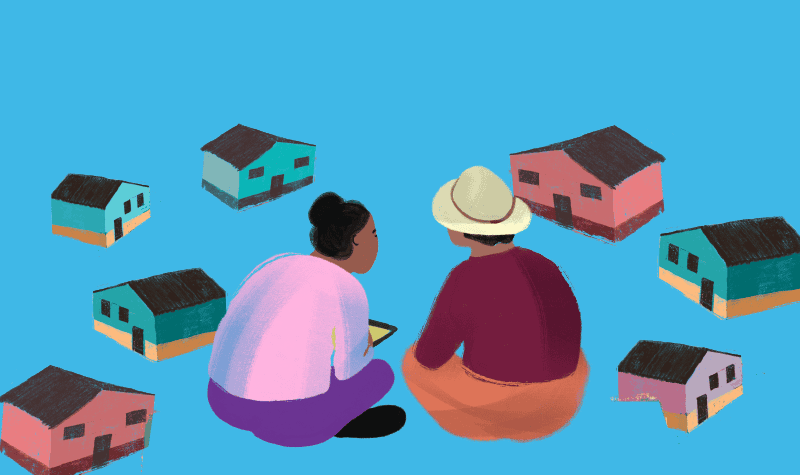
A note to funders
There is a clear need for support and resources that enable those working toward stronger information ecosystems to more effectively navigate the current moment: for example, through tools to combat information disorder, resources to protect against digital threats, and tech that is climate and privacy respecting, among others.
Long-term funding surfaced in our research as especially important – particularly the type of long-term funding that:
- allows for system capacity, and for space and time to dream and act on vision
- invests in audience needs
- nurtures smaller and grassroots organizations, and
- fosters a diversity of actors.
In order to achieve healthier, more robust information ecosystems, sustained support is needed for local journalism, civil society organizations, popular communicators, activists and other social justice actors, and technologists critically supporting these initiatives.
Funding and support is needed in particular for tech and data needs, building digital resilience, ensuring meaningful connection through equitable and climate respecting infrastructure, fostering collaboration, and funding collective visions of healthier information ecosystems.
